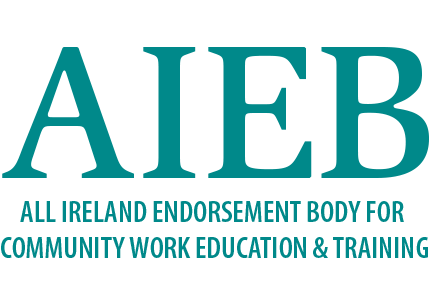Community workers work with communities through the application of the following core values as laid out in All Ireland Standards for Community Work:
Collectivity
Community workers work collectively with communities and focus on the benefits for the community rather than for individuals.
Community Empowerment
Community workers focus on empowering communities, supporting them to become organised, inclusive, resilient, and influential.
Social Justice and Sustainable Development
Community workers are concerned with promoting a just society through the application of policies and practices that challenge inequality, exclusion, and discrimination.
Human Rights, Equality & Anti-Discrimination
Community workers work to secure a society which is concerned with human rights and equality for all through engagement with human rights mechanisms, framework, and processes.
Participation
A participatory approach promoting the rights of communities to be involved in self-identification or their needs and the formulation or responses to those needs is central to the way in which community workers engage.
Community Development is a unique activity which articulates a visions for human rights and equality and sets out a vision for this through practice.
Where do Community Workers work?
Community workers work in diverse communities, with or in communities of interest, geographic communities, rural and urban communities, at local and national level.
They work with and not for communities and are focussed on outcomes for the collective instead of the individual. It is through the application of the values as set out in the All Ireland Standards for Community Work that community workers seek to achieve real and sustainable change for marginalised and disadvantaged communities.
Community work/community development graduates can take up professional employment in a range of community work organisations and agencies which employ community workers.
These include:
- Local community development projects
- Local Development Companies
- Local and national organisations working with communities of interest (e.g., women, Travellers, new communities, LGBTQI+)
- National and local organisations concerned with particular issues (e.g., unemployment, migrant rights, drugs, poverty, racism, gender equality, disability rights)
- Family Resource Centres
- Community health initiatives
- Local authorities/councils and local health services
- Community engagement initiatives
- Research organisations
Why should I consider AIEB endorsed education programmes?
By choosing one of the AIEB endorsed community work/development programmes you will know:
- That you are choosing a programme which has been approved as achieving a standard of quality provision.
- That the community work education and training programme, its process, and content is informed by people involved in community work/community development.
- That the programme is working to nationally recognised standards and based on best practice in community work education and training.
- You will have the value of AIEB endorsed learning which in turn should improve your employment prospects as recognition for the endorsement process amongst policymakers, funders and employers grows.



